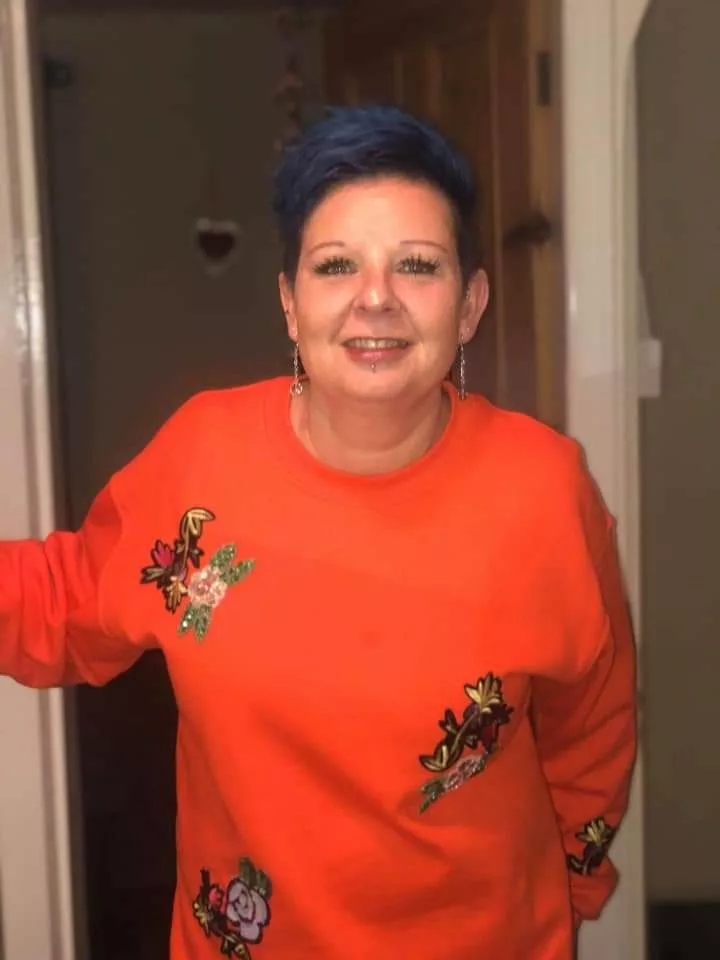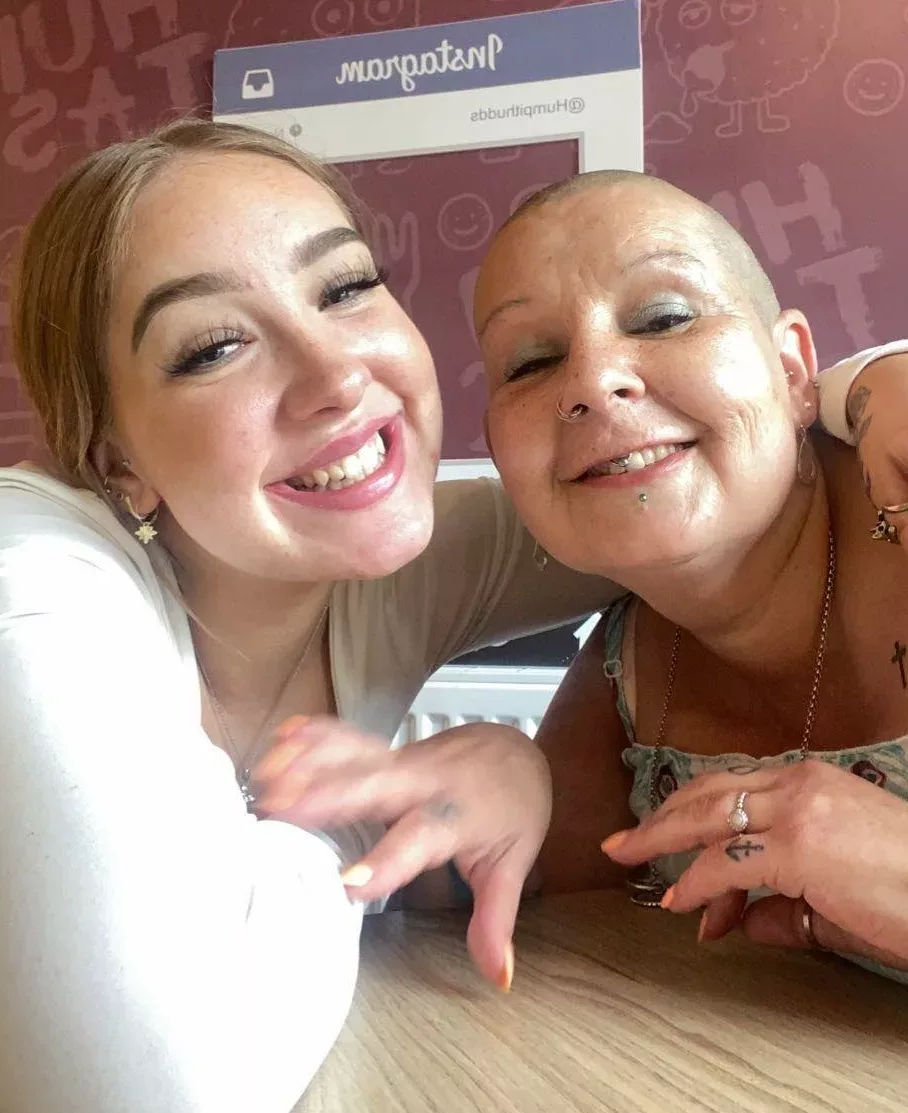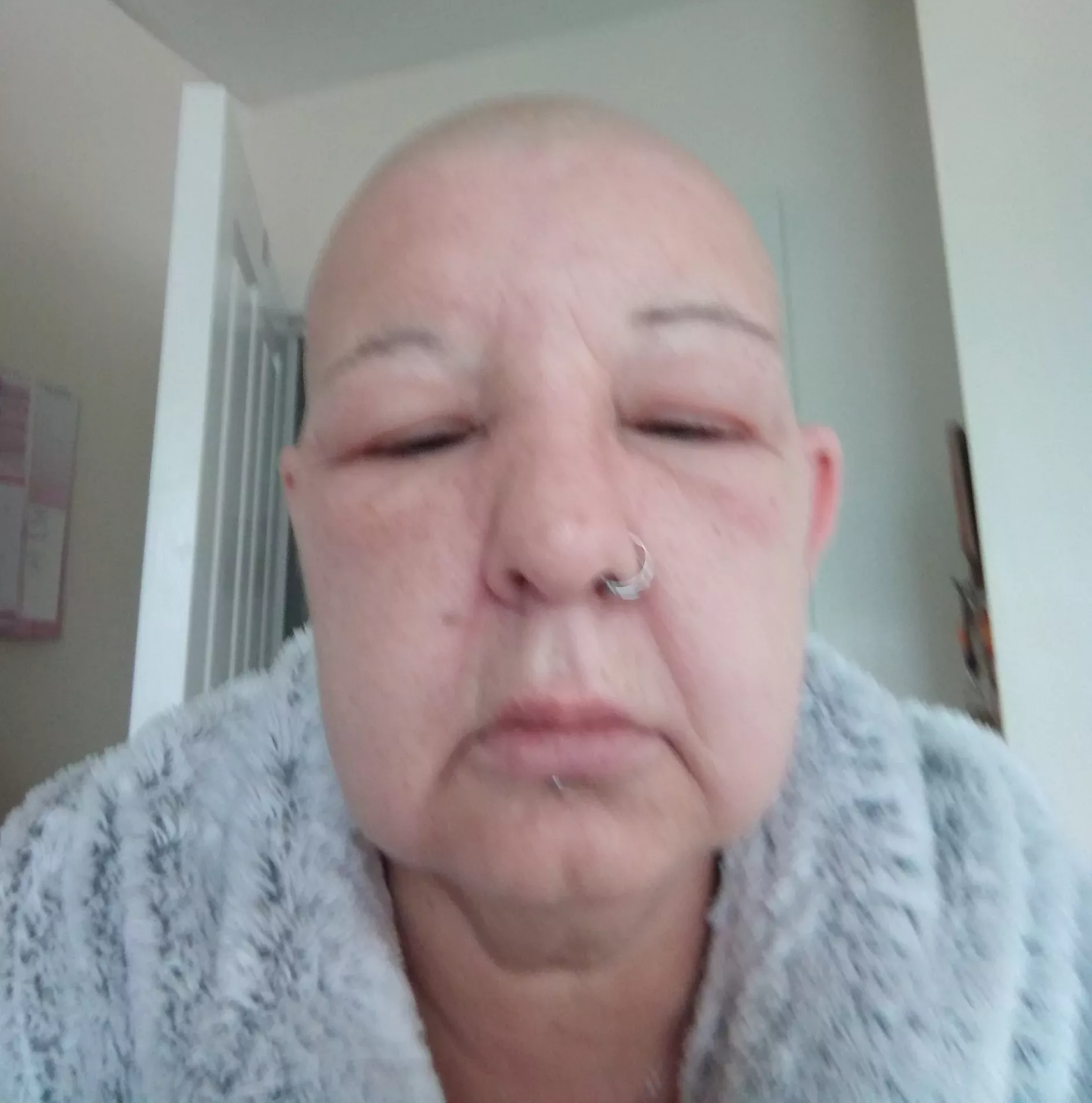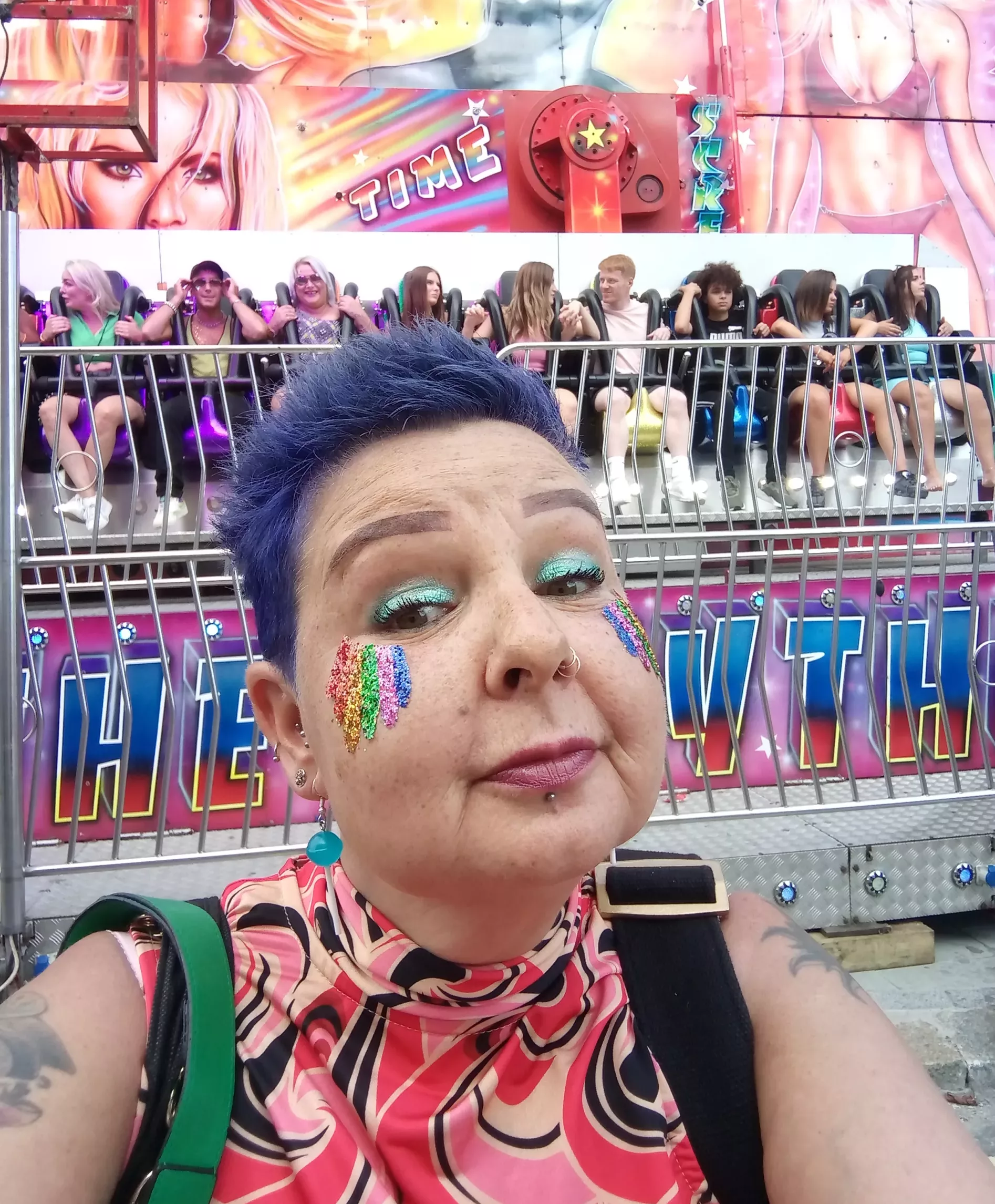
18 Apr 2023
“‘It’s not good’. I will never forget those words”
 “I knew my body was failing me, but no one would listen.”
“I knew my body was failing me, but no one would listen.”
Tammy Guide visited her doctors and local A&E six times – twice by ambulance – over a two month period at the end of 2020. The former office worker who also gave her time volunteering at her local hospice and dementia café, was struggling to walk and care for herself, had high temperatures and sweats, and had developed lumps all over her body. But the multiple doctors that she saw all failed to correctly diagnose that she was actually suffering from blood cancer.
“I was fobbed off time after time and sent home,” said Tammy, who was 49 at the time and lives in Sowerby Bridge in Yorkshire. “The last time I was sent home my CRP (infection) markers on a blood test were 297. I have since found out they should be approx five! I had moved house on 14th December 2020 and started to feel unwell two days later. In February 2021, by sheer luck, my rheumatologist who I’d seen when I’d been diagnosed with rheumatoid arthritis a few years earlier, had been looking at my bloods. He noticed a discrepancy and rang me at 8pm on a Friday evening telling me my white blood count was raised and I should contact my doctor on Monday. The GP immediately sent me to Huddersfield Royal Infirmary for a bone marrow biopsy, to ‘rule out anything nasty’. Alarm bells rang and I later found out that he knew what was wrong but it wasn’t his place to tell me.”
Tammy’s biopsy took place on 21st February 2021. She was immediately told she had acute myeloid leukaemia (AML).
“We were shown into a consulting room and there was a MacMillan nurse present,” said Tammy.
“The consultant said three words to me: ‘It’s not good’. I will never forget those words. He told me I had AML and to expect a call from St James’s Hospital in Leeds in the next day or so. I received that call later that afternoon and was told to go in that evening. I have no recollection of telling my daughter Jessie, who was only 18 at the time, and her brother – apparently your brain is clever enough to shut out trauma.”
 “My Arthur Scargill”
“My Arthur Scargill”
Tammy’s chemotherapy treatment started that evening. It was administered through a ‘PICC Line’ in her chest – a Peripherally Inserted Central Catheter. “My daughter once wrongly referred to it as a picket line so, from then on we called it my Arthur Scargill (back to the mining days)!” said Tammy. “The chemo I received was life-saving and gruelling. I would definitely not be here to tell my story had it not been for the vigilance of my rheumatologist.
“I spent over a month in hospital. I had some down days, it all seemed so unfair. I resented my family at times for being able to carry on with their lives as normal while I was confined to a room having punishing treatment. I now know they weren’t able to carry on as ‘normal’. Their lives had been blown apart just as much as mine had. The only difference being I suffered the actual physical effects.
“I once asked my bone marrow transplant nurse specialist if my lifestyle had caused my illness – I used to drink and smoke, like billions of other people. She told me it was purely and simply bad luck because I had what they call a ‘Flip Gene’ which left me predisposed to getting leukaemia.

“Eventually, I was discharged to the hotel within the hospital. I couldn’t go home as I lived over 30 minutes drive away – at the first sign of any symptoms of an infection I would have had to be at the hospital and on intravenous antibiotics within a half hour window. The staff and the treatment I have and continue to at St James’s, Leeds have been fantastic. From the cleaner to the top consultant, I could not fault any of them.”
30% success rate
Tammy continued with daily chemo and then eventually on 10th September 2021 she was given a stem cell transplant. But on 21st December 2021 she was told the devastating news that her white blood cell count had gone up again and the leukaemia was back.
“I was also told I had only months to live and if there was anything I wanted to do or places to see then I must not wait to do it,” remembers Tammy. “It still makes me feel sick when I replay those words in my head. But they then said that a new tablet was available, although it had only a 30% success rate. I had no choice but to try it – I wanted to live.”
After a gruelling Christmas back with her family, with Tammy lying on the sofa too weak to move, she received the incredible news in February 2022 that she was finally in remission. Now she still takes medication which she has been told will eventually stop working – although her medics have no idea when.
“Worrying about tomorrow only take away today’s peace”
“I am in a good place both mentally and physically,” says Tammy, now 51. “If I take each day a day at a time my life is manageable. My dad had lung cancer before my diagnosis and my mum has recently been diagnosed with bowel cancer. Cancer does not discriminate, it can affect anyone. Somehow, I manage to compartmentalise my illness to the very recesses of my brain. It doesn’t affect my day to day life. My philosophy is this – worrying about tomorrow only take away today’s peace.

“But it is without doubt the hardest thing life has ever thrown at me. The 18 months post-diagnosis were the most gruelling I have ever had to endure, both physically and mentally. I was home just in time for my 50th birthday, after begging my consultant to discharge me. My mum had arranged for a Cornish afternoon tea to be delivered and my daughter had the most amazing birthday cake made for me. We went for a walk round our local park and I had to stop and rest at every single bench we passed but my family made the day perfect. My brother and his fiance have a caravan near Beverley on the most beautiful, idyllic site I have ever been to. I spent lots of weekends there, resting and recuperating. They couldn’t do enough for me. Family is the defining thing that has got me through the torturous 2.5 years of my treatment.
“Having a positive mental attitude has really helped me cope with my situation. I’m not going to let this beat me, at least not yet. I have too much to live for and too much to give. To anyone starting this journey I say don’t give up. Even when it seems the only option you have. Last year I raised £600 for our local hospice by walking 21 miles over 2 days – this was less than a year post transplant. My mum did it with me and she’s 76! This year I am doing it all again for a different charity, Andy’s Man Club. I’m hoping to raise even more. I’m also a Crown Green Bowler and am pleased to be back to bowling which I love.
“My advice to anyone would be if something doesn’t feel right with your body then please get checked out. The two months prior to my diagnosis I felt like I was slowly dying and I verbalised this to the hospital time and time again but they constantly fobbed me off. In reality, I was right.”
Learn about the signs and symptoms of leukaemia and how you can get involved in the Spot Leukaemia campaign.
Related posts
4 April 2022
Leukaemia UK launches search for five new talented Trustees
We are looking for a talented and diverse set of Trustees to join our Board, and help guide the charity as we embark on an ambitious new strategy to accelerate progress in leukaemia research to stop leukaemia devastating lives.
20 October 2023
Emerging leaders accolade for former Leukaemia UK John Goldman Fellows
Former Leukaemia UK John Goldman Fellows, Dr Matthew Blunt, University of Southampton and Dr Konstantinos Tzelepis, University of Cambridge have been recognised as ‘Emerging Leaders in Leukaemia’ by the major…
20 September 2021
Leukaemia charities unite in Blood Cancer Awareness Month to improve diagnosis and the chances of survival
Leading UK leukaemia charities Leukaemia Care and Leukaemia UK have announced a new collaboration to increase awareness of the signs and symptoms of leukaemia and drive improvements in the diagnosis of the disease. The campaign, Spot Leukaemia, is running throughout September – Blood Cancer Awareness Month.
23 October 2024
Leukaemia UK announces innovative projects by four female researchers addressing aggressive blood cancers
Leukaemia UK has today announced it will invest £600,000 into four groundbreaking research projects aimed at developing kinder, more effective treatments for various aggressive blood cancers, including acute myeloid leukaemia…